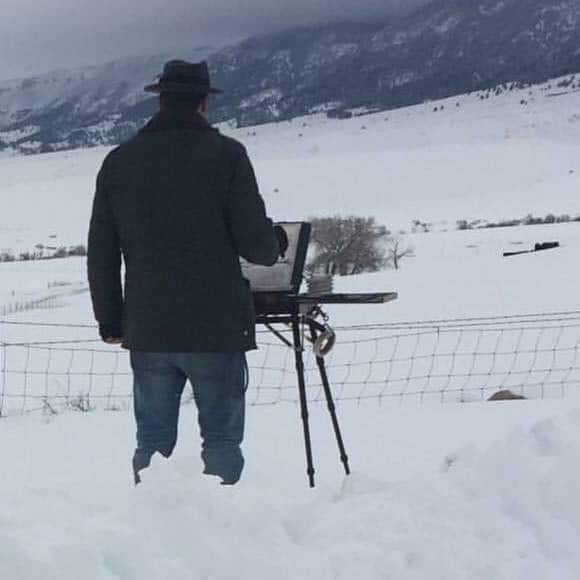
Tips for Painting Outdoors
By Dan Marshall
I often hear artists talk about plein air season and how they can’t wait for the weather to clear to get out painting again. Now, I enjoy painting on a beautiful spring day as much as the next artist, but going out in inclement weather has been so beneficial to me and offers a variety of creative benefits.
New subjects to explore, seeing “mood” in action, learning to mix a full range of grays, keeping your plein air senses honed and sharp throughout the year — what a chance for adventure and . . . bragging rights! If you haven’t ventured out in bad weather, try it! It’s not as daunting as it may appear.
With the proper preparation you can stay comfortable, relaxed, and focused when painting outdoors in cold weather.
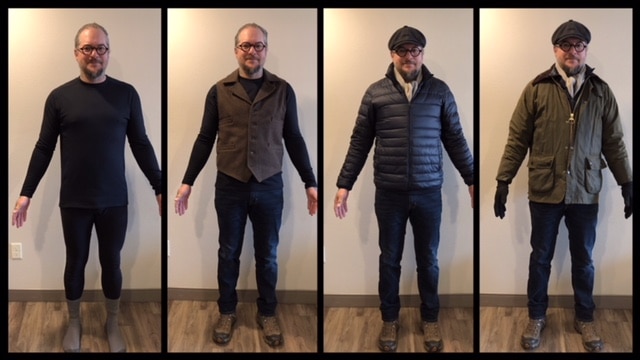
Being prepared for the elements will make all the difference, especially when painting in winter. I start with a moisture-wicking base layer and warm socks. Thicker denim jeans and a few layers on top, wool vest, thin down jacket then a wax canvas jacket to keep the wind from blowing in. I finish off with waterproof boots, scarf, and gloves. This will keep me comfortable in freezing weather.
How to Keep Paint from Freezing
Now, as I am a watercolor artist, sub-freezing temps add another obstacle. I rarely paint when it is below freezing, but the mix can still turn into a slush on the metal palette if the temps are around freezing. Adding a small amount of vodka into the wash water keeps the pigment from freezing on my metal palette and paper. The ratio I use is about 1 part vodka to 5 parts water. I keep an airline-size bottle in my kit, usually available near the checkout of your local liquor store.
I was once painting in Manhattan without the vodka mix and my whole painting was a sheet of ice. I went into a coffee shop to warm up with my “ice” painting, watching in horror as it melted and dripped down off of the paper! This of course created some cool effects but not really what I was after.
Painting Outdoors: Rainy Streets. Finding a nice overhang to stand under and wearing a rain jacket made these paintings a breeze. I also use a rain shade over my paper support to keep any stray drops off of the painting.
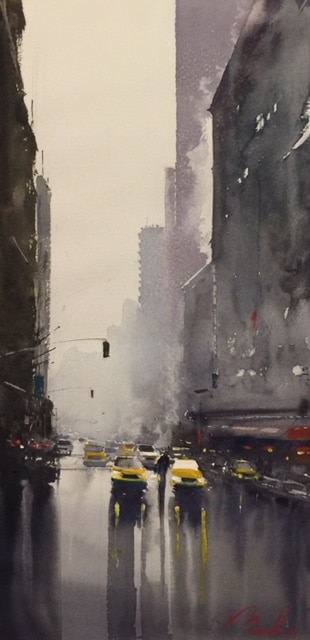
Plein Air Painting in the Rain and Wind
Compared to that, painting in the rain is a walk in the park. In a town or city, standing under an overhang and using a rain jacket and a rain-shield on the paper support do the trick.
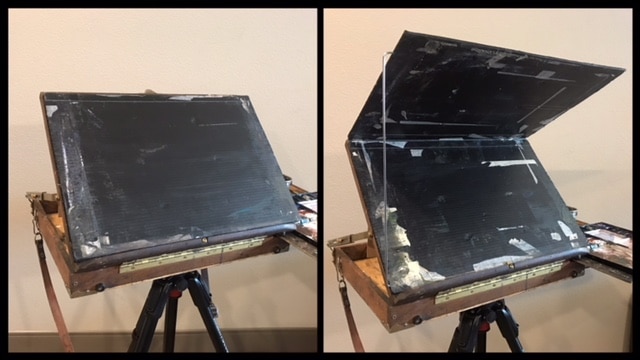
The last real challenge with plein air painting in bad weather is dealing with the wind. The cold, snow, and rain are nothing compared to trying to paint in the wind. Unfortunately there’s really nothing you can do about it! I’ve tried setting up my easel low and sitting; sometimes that helps a little and it can also help in the cold, but if the wind is just too much I will retreat to my car. I’ve done a few paintings with my paper support clipped to my steering wheel as an easel and that’s a last resort. Another option that I am totally okay with is getting a good start on location and then finishing up in the studio.
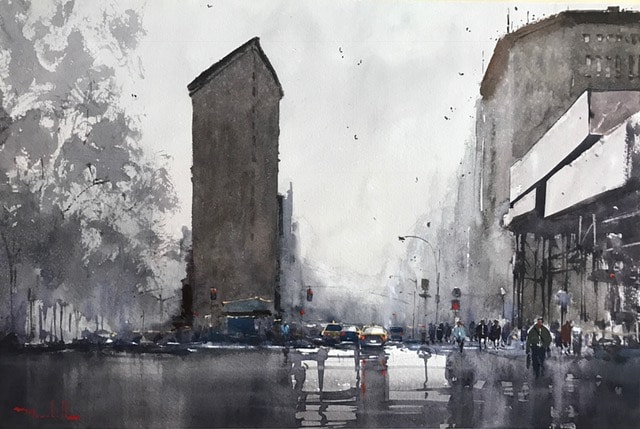
Again, preparation is key. I use a weather app on my phone to check temps and wind speed at the location I’m heading to, and I always dress warmer than I think I’ll need. Standing still on location for an hour or so will always feel colder than what the thermometer says.
Rainy streets, crisp mornings, foggy hills, snow-covered landscapes. All the nuances of these subjects are completely lost when painting from photographs alone. The atmospheric effects also allow for complete artistic interpretation and not just photographic duplication.
Getting outside “off season” can do wonders for your painting technique and offer so much more and really expand your range of work! Always be safe, know your limits, and happy painting!
The following paintings were created during a Wyoming winter. They are two versions of the same view painted on this outing. Look for a mix of hard and soft edges in the snow.
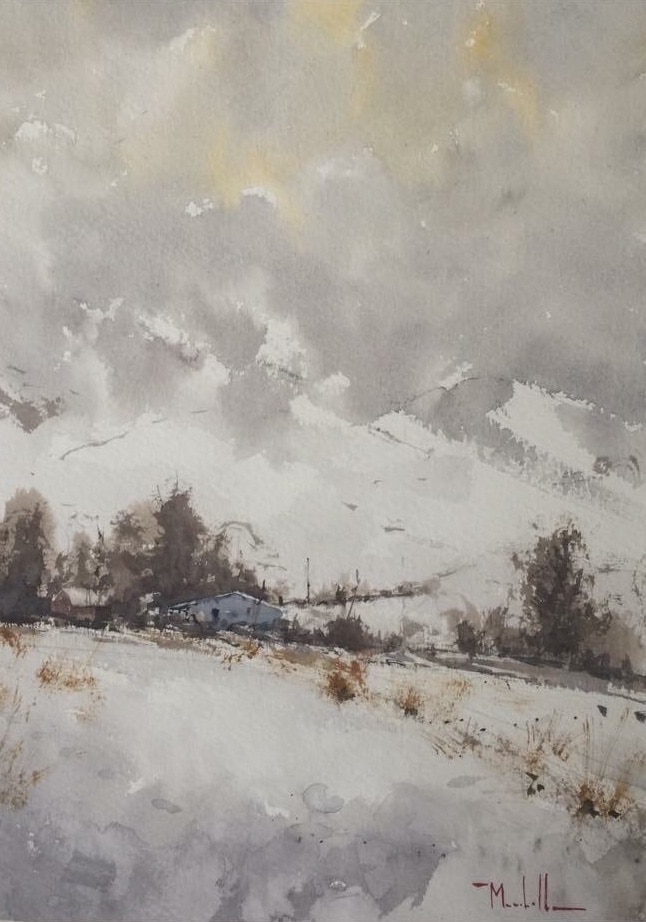
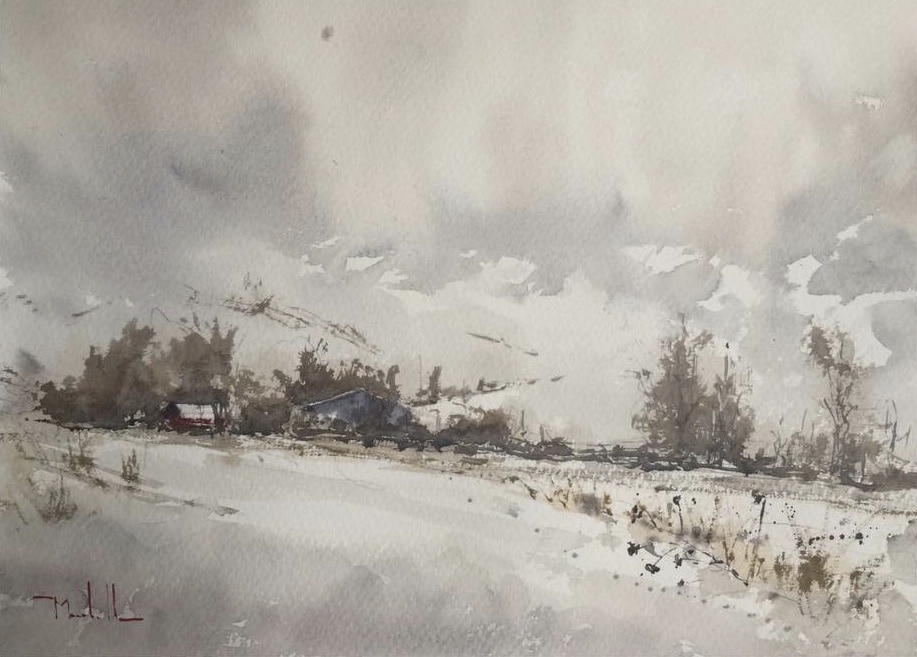
Cold Mornings. Plein air painting on these days did not offer snow, but it was very cold, in the mid-30-degree range. A good base layer of long johns and under shirt, with layers of clothing on top Including hat and gloves kept me quite comfortable.
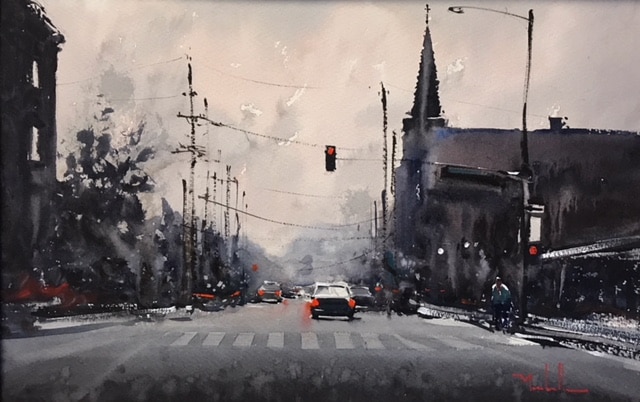
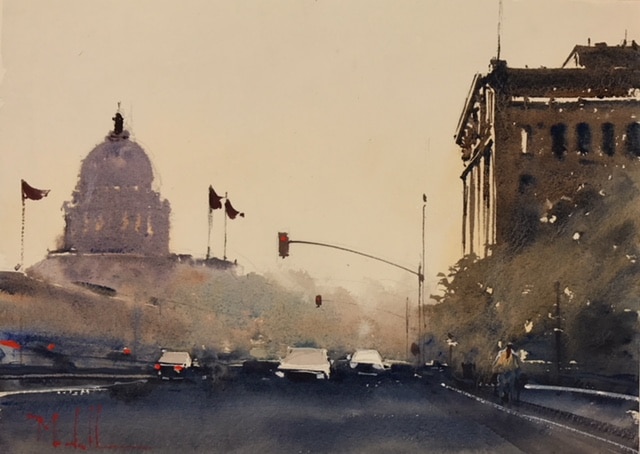
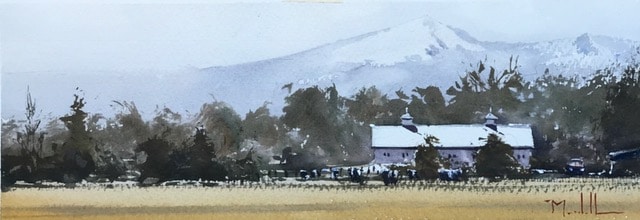

Editor’s Note: Stay tuned for Dan Marshall’s upcoming Creative Catalyst art video workshop on how to paint with watercolor! And learn from Dan in person at the 8th Annual Plein Air Convention & Expo!


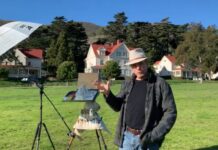
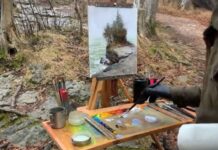
[…] more into daytime activities, then consider channeling your inner artist by heading outdoors and setting up an easel outside to capture the beauty of winter on canvas. During the winter, the sunlight light is lower in the […]